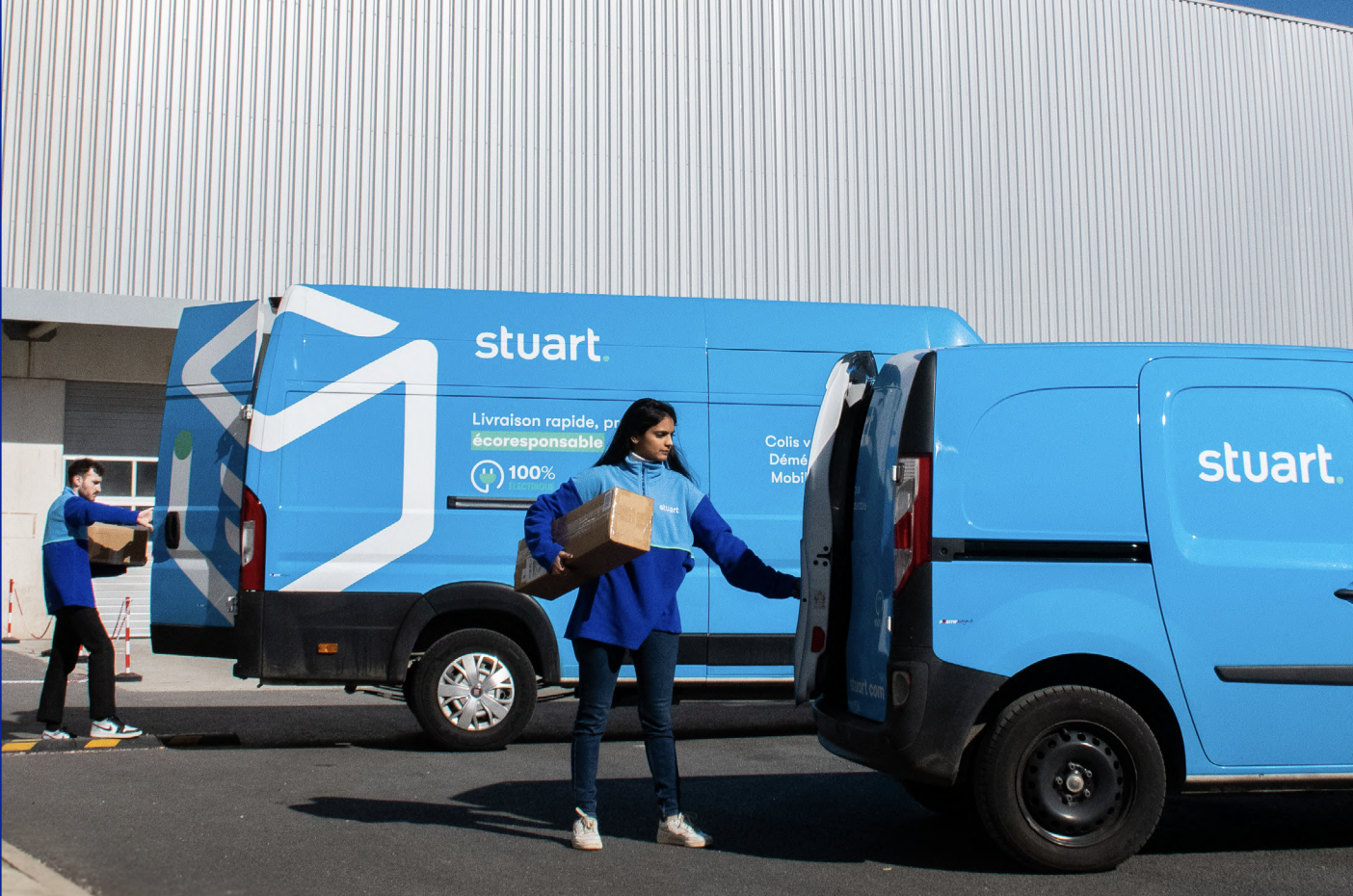Some of the big names in retail are starting to make their peak season preparations known; from Yodel hiring 7,000 staff, to Argos incentivising customers to shop before Black Friday. Last week saw Tesco start running a warning on the Tesco Direct website that next-day collection services may be subject to delay due to the volume of orders it anticipates taking.

A wise precaution to take, or it Tesco shooting itself in the foot? Of all the words of wisdom to follow Black Friday / Christmas 2014, one of the most common was along the lines of ‘treat your customers like adults – talk to them, tell them if there are likely to be problems with deliveries.’ Keeping your promise to the customer is everything in multichannel retail, after all.
Some went further, calling upon retailers to mend their ways and stop creating an unsustainable feeding frenzy. Dick Stead, executive chairman of Yodel, has regularly stated the case over the last 11 months or so that the retail industry cannot simply expect carriers to pick up whatever is thrown at them and still provide a first class service, regardless what volumes are involved.
On one hand, it is clearly the right thing for Tesco to forewarn customers that there may be problems. But not everyone in the retail sector may choose to be as transparent about its peak preparations, leaving the door open to as much business as they can churn; the challenge of delivering or not, as the case may be, weighing less heavily on them at the moment.
Gerald Dawson, director of finance and operations, Weird Fish, points out Tesco’s delay warning is really just an indication of where stock is held, and he is less than sympathetic to the Yodel viewpoint. “This highlights the distinction between click-and-collect fulfilled from store and click-and-collect fulfilled from a DC; the former is not impacted by delivery issues. Tesco are accelerating service in one and reducing it in the other.
“I don’t accept the carriers’ warnings about managing expectations. The good carriers will find a way to perform; the bad ones will blame their clients.”
Tim Robinson, Doddle’s CEO, sees Tesco’s action as highlighting one of the biggest problem retailers face at this time of year – they are caught between a rock and a hard place. “Tesco are being clear and open in their communications with their customers, which is never a bad thing. It is the right thing to do.
“However, consumers are now so used to getting what they want, when they want it, that if the delivery options offered by one retailer aren’t what they want, it only takes a few clicks to find it elsewhere.
“This is a double-edged sword for retailers, they will lose customers if they don’t communicate delays to their services, but they may also lose customers to competitors by communicating those delays.”
But this is not a zero-sum equation according to Robinson. It would be easy to trot out age old adages like damned if you do, damned if you don’t, but they rarely offer tremendously helpful insight, and in this case they somewhat miss the point; you have to do something, and there is a difference.
“At the end of the day, giving customers the choice to go elsewhere if the regular service can’t be fulfilled is far better customer service than not giving them the choice and failing to deliver a customer promise,” Robinson says.
That importance of playing straight with customers is something picked up by David Jinks, who is head of public relations for the parcel broker, ParcelHero. “No company will have no problems at all at such a busy period,” he says. “And there is nothing wrong with Tesco being honest about that.
“There is an argument to be had that that Black Friday weekend in particular does put an artificial strain on order fulfilment, and that in an ideal world retailers could spread their sales over a longer season.”
Last year, click-and-collect was heralded as having saved the day for many retailers, and with ParcelHero about to launch its own click-and-collect service later this month, Jinks sees this as still being a potential lifeline in 2015 too. “The growth of click-and-collect should not be an extra strain. In fact, it should ease problems rather than increase them. Click-and-collect reduces the number of deliveries for retailers, as the items are consolidated and delivered into fewer destinations, such as local lockers and stores, rather than individual addresses.”
Andy Hill, commercial director of Electio, the delivery management platform from MPD Group, thinks retailers going public about delays are brave, but he thinks Tesco could be doing more to help itself. “It’s heartening to see the industry making steps to improve the logistics of Black Friday rather than go on suffering year on year. Tesco has realised that going in for as many short-term sales as possible is a poor strategy. If you aren’t able to fulfil all orders successfully, it’s far better to inform customers beforehand so they aren’t left disappointed.”
But, he warns: “As much as I admire the decision, this is still a brave move by Tesco. It’s likely they’ll risk losing out on sales in the short term with shoppers deciding to buy elsewhere. Instead, we’re seeing a focus on maintaining brand reputation and meeting customer expectations – a long term view.
Before adding that Tesco might be sitting on an advantage it isn’t aware of: “I’d also predict that before long we’ll see Tesco giving much more thought to the amount of retail space they give to click and collect desks in store, and perhaps nudging customers into the most preferable delivery options using the promise of additional Clubcard points which I think could be quite effective. For instance, shoppers could receive points in return for accepting a 3-5 day delivery window.”
Jason Tavaria, is head of direct at Shutl, the super-fast courier startup. Not only does he unflinchingly support letting customers know there may be shipping delays, he thinks the risks of not coming clean are too great. “In the past there’s been some badly managed responses to Black Friday orders, delays and websites going down, but we think retailers have done a lot of growing up when it comes to managing customer expectations.
“In addition to making huge investments in resources and technology, retailers are taking a more mature and pre-emptive approach to setting expectations as they’re fully aware of the consequences of disappointing a customer – not only a lost sale, but potentially a social media crisis and a front page headline.
Setting and managing expectations ahead of Black Friday is a smart move by Tesco and we expect to see other sensible retailers taking a similar approach (unless they’re more settled in the ecommerce space). Being open and upfront helps to set expectations from the outset and an informed customer is a happier customer.
“We live in a world where good communication is critical and it’s really important not to disappoint shoppers. If the worst case scenario does happen and they experience issues, again be honest, manage it well and you’ll stand a better chance of maintaining a positive relationship in the long run.”
That’s a point echoed by Patrick Gallagher CEO of same-day courier CitySprint. “No retailer wants to discourage purchases, but they underestimate the potential brand damage that can be caused by missed deliveries and disappointed customers at their peril.”
The point about a potential social media backlash is one that probably won’t be lost on some of the larger carriers in particular. Yodel routinely attracts a lot of criticism from people on Twitter, for example, as does Hermes. But they are by no means the only ones, and to an extent their size and reach must count against them. DPD, by contrast, fares well on social media and clearly invests a lot of time and resources into maintaining a good, open communication channel with the public.
Perhaps that points the way to an answer, if there is one, to the question of which is the lesser of two evils – forewarning customers, and risk losing business, saying nothing and risk a backlash. Reputations are harder to win than ever, after all.













